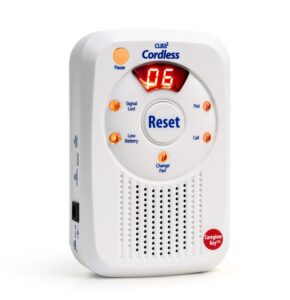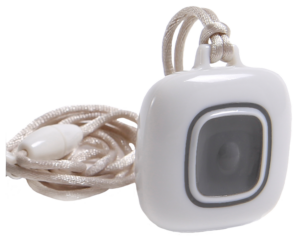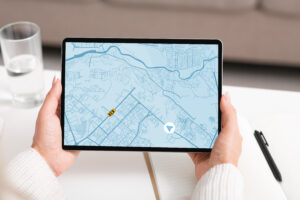
EkoTek Assist Fob
The EkoTek Assist Fob is a cutting-edge device

Effective communication plays a vital role in the field of aged care. It is not just about conveying information, but also about building relationships, understanding, and empathy. In a setting where individuals may face physical and cognitive challenges, clear and compassionate communication becomes even more crucial. In this article, we will explore some important strategies and techniques for effective aged care communication.
Active Listening: The backbone of effective communication is active listening. This involves giving your undivided attention to the resident and being fully present in the conversation. Maintain good eye contact, nod and provide verbal feedback to show that you are engaged. By actively listening, you can better understand their needs, preferences, and concerns.
Use Simple and Clear Language: When communicating with elderly individuals, it is important to use simple and concise language. Avoid complex terms or medical jargon that can cause confusion. Speaking slowly and clearly, while allowing enough time for them to understand and respond, is crucial for effective communication.
Non-Verbal Cues: Non-verbal cues such as facial expressions, body language, and gestures can sometimes convey more than words alone. Smile, maintain an open posture, and use gentle touch (if appropriate) to show empathy and build trust. Pay attention to the resident’s non-verbal cues as well, as they may indicate their comfort or discomfort.
Empathy and Understanding: Aged care residents may feel vulnerable or lonely at times, so it is essential to approach them with empathy and understanding. Put yourself in their shoes and try to imagine how they might feel. Show compassion and validate their emotions. Acknowledge their feelings and offer support and reassurance.
Simplify Information: As people age, memory and cognitive abilities may decline. To ensure effective communication, it is important to simplify information. Break down complex concepts into smaller, more easily understandable parts. Use visual aids, written instructions, or even technology (if applicable) to aid in conveying information and instructions clearly.
Respect Personal Space and Privacy: Respecting personal space and privacy is crucial in aged care communication. Always knock before entering their room or personal space, and be mindful of their need for privacy. Obtain consent before sharing any personal information with others and maintain confidentiality at all times.
Adapt to Individual Needs: Every aged care resident is unique, with their own preferences, communication styles, and abilities. Take the time to familiarize yourself with each resident’s communication preferences and adapt accordingly. Some individuals may prefer written instructions, while others may respond better to verbal cues. Adjust your communication style to accommodate their needs.
Involve Family Members: Family members play a crucial role in aged care communication. They possess valuable insights into the resident’s history, preferences, and routines. Regularly involve family members in discussions and decision-making processes to ensure comprehensive care and a holistic approach.
Effective aged care communication requires patience, empathy, and a genuine desire to connect with the residents. By implementing these strategies, you can build strong relationships, enhance the residents’ quality of life, and contribute to their overall well-being. Remember, effective communication is not just about information exchange; it is about fostering human connections and providing compassionate care.
Electrotek has an extensive range of communication devices like Genus Care to keep in touch with your loved ones online shop here.

The EkoTek Assist Fob is a cutting-edge device

.The 2701 Falls Monitor with Safetime Support

If you or a loved one requires

In today’s fast-paced and dynamic business landscape,
Cleo is an experienced administrator with a strong history working in large corporate settings and was the National Operations Support Lead for a big not-for-profit organisation. Other strings to her bow include marketing, as well as a demonstrated ability to manage and coordinate a multitude of tasks.
Cleo’s qualifications include a Bachelor of Accounting/Business Administration and a Diploma of Community Services Management.
She’s not only the smiling face around the office, but also oversees all the administrative functions and provides operation support and manages compliance.
Joseph holds years of experience maintaining and installing Radio Broadcast equipment, Drive-Through equipment, Public Address systems, as well as Nurse Call systems with private health and large medical practices. His experience working with electronic equipment extends to cable installation, maintaining radio repeaters, paging and dect phone systems. He enjoys all facets of his role, including the on-site, installations and customer interactions, as much as he enjoys the pre-install workshop preparation required in making nurse call equipment specific to individual customer needs and bespoke modifications.
Qualifications:
Jan holds the challenging position of Operations Manager at Electrotek and has been integral to the success of the company since 2015 and is involved with different aspects of operations, including servicing, installation, manufacturing, technical support, warehouse management, project management, and leading a team of technicians across Australia.
Jan holds a Bachelor’s Degree in Electronics and Communications Engineering and a Diploma in Project Management.
Neil has worked in a variety of sectors in an engineering and development capacity, his roles include Research and Development with CRC for Microtechnology on Athlete Monitoring with the Australian Institute of Sport. Neil’s name is prominent on multiple patents.
Neil’s functions include the technical direction of the company, guidance and oversite of hardware and software systems.
Previously Neil has held product development roles, from prototype stage to small scale production. The development of engine control system for LPG and LNG fuel delivery to heavy vehicles, as well as the development of onboard data collection and monitoring systems for heavy vehicles (surface and underground).
Neil has underpinned not only the technical requirements of Electrotek, but the team as well, training and providing guidance to the team of technicians.
Qualifications:
Belinda has over 30 years’ experience in executive support and office management positions through small companies and corporate, including FMCG’s, leading accounting firm and Telstra (in Australia). She was integral to creating and growing Electrotek where she now holds the role of General Manager.
Belinda’s passion for success in business and in caring for customers drives her to lead from the ground up extracting the best from her team and for her customers.
Belinda holds various supporting qualifications including Certificate IV in Small Business Management.
Theo Kuppens is the Managing Director of Electrotek, an established provider of emergency communication, electronic security, and telephony solutions within the health and aged care industries.
With over 30 years industry experience, he has a broad background and experience in technology covering Information Technology (IT), electronics, telecommunications, audio-visual engineering, and electronic security.
With this industry knowledge and experience, he is well placed to look at technology issues facing clients within the health and aged care sectors from a solutions-based perspective rather than the traditional product “one shoe fits all” methodology.
He is still “hands-on” and, together with the engineering and technical team, continues to look at evolving technologies that will improve operational efficiencies, staff safety, and reduce “cost of ownership” of installed systems by empowering onsite maintenance personnel.
Qualifications: